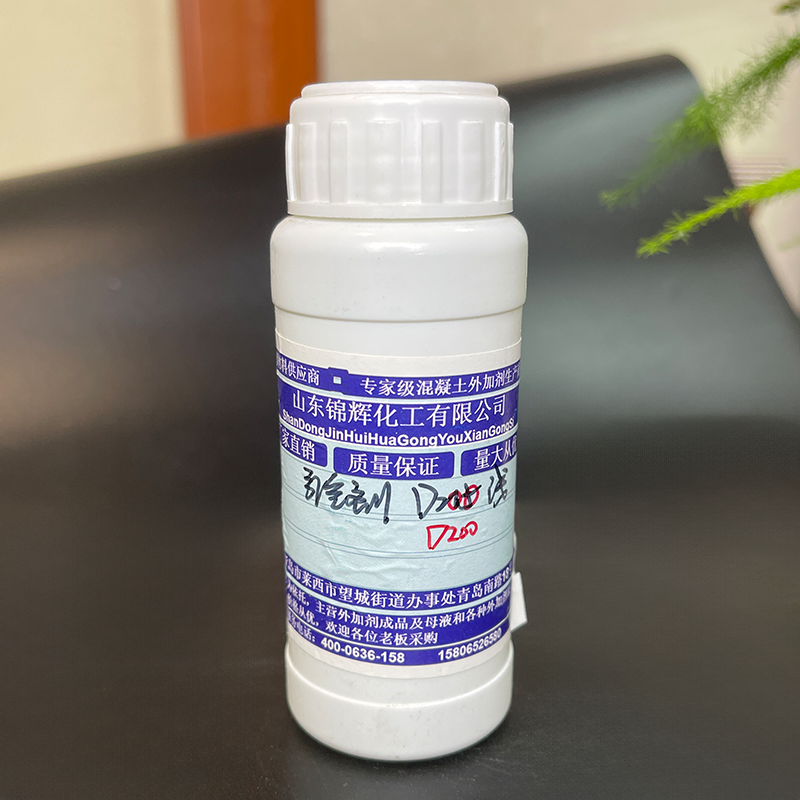
-
Product features
01 Improving the workability of concrete mixtures
The addition of air entraining agent forms a large number of small enclosed spherical bubbles in the concrete mixture, which act like rolling balls, reducing the frictional resistance between aggregate particles and increasing the fluidity of the concrete mixture. If liquidity remains unchanged, water consumption can be reduced. At the same time, due to the uniform distribution of water on the surface of a large number of bubbles, the amount of water that can move freely is reduced, and the amount of bleeding in the concrete mixture is reduced, while the water retention and cohesion are correspondingly improved.
02 Improve the impermeability and frost resistance of concrete
The air entraining agent reduces the water permeability of the concrete mixture. Therefore, the capillaries of the secretion channels are correspondingly reduced.
03 Reduce concrete strength and increase deformation capacity
Due to the presence of a large number of bubbles, the effective stress area of concrete is reduced, resulting in a decrease in concrete strength. Generally, for every 1% increase in gas content, the strength decreases by 4-6% and the flexural strength decreases by 2% -3%.
04 Improving the flexural strength of concrete
When the gas content is 3% -5%, the flexural strength increases by 10% -20%.
05 Freeze thaw resistance
The anti freezing and thawing performance of concrete is significantly improved by using air entraining agents with anti freezing and thawing properties.
06 can improve the flexural and tensile strength of concrete
Generally speaking, although air entraining agents have a reducing effect on the compressive strength of concrete, if the dosage and air content are appropriate, they can actually improve the flexural and tensile strength of concrete. This is an indispensable and important additive for producing high-performance road concrete.
07 Reduce strength and elastic modulus
Due to the elastic deformation of bubbles, the elastic modulus of concrete decreases.
08 compressive strength
The compressive strength of the air entraining agent increases the bubbles in the concrete, thereby reducing the effective area of the slurry, resulting in a decrease in the compressive strength of the concrete.
09 Reduce the strength of concrete and improve the crack resistance of mortar
Due to the presence of a large number of bubbles, the effective stress area of dry powder mortar is reduced, resulting in a decrease in concrete strength. But the air entraining agent has a certain water reducing effect, and the decrease in water cement ratio compensates for the strength to a certain extent.
10. Reduce the carbonation rate of concrete
The enclosed bubbles cut off the connected capillaries in the concrete, thereby improving its impermeability, frost resistance, and other durability, and reducing its carbonation rate. The addition of air entraining agent in the pumping agent can meet the requirements of anti freezing damage in winter construction.
11. Improving the flowability of concrete
Air entraining agents can improve the fluidity of concrete, making it easier to smooth and thus improving the construction efficiency of concrete.
12. Impact on surface performance
The reduction of bleeding may affect the smoothing process of the concrete surface. Generally, using metal (usually magnesium or aluminum) tools or delaying the start of the plastering operation can help reduce this adverse effect. In fact, due to the small amount of bleeding, suitable processing can better ensure the durability of the aerated concrete surface. With the development of construction technology and high-rise buildings, the pumpability of concrete is becoming increasingly important. In fact, pumpability is a special manifestation of good workability of concrete. Due to the addition of air entraining agents, the cohesion of concrete and the lubricating effect between materials are increased, which reduces swelling and prevents excessive segregation and bleeding during conveying. Therefore, adding air entraining agents can improve the pumpability of concrete. However, the air content of concrete should not be too high. Excessive air content can cause an increase in air compressibility, resulting in an unsaturated state, increased pump pressure loss, and reduced pumping efficiency.
13 reduces the bleeding and segregation of concrete
(1) Bleeding can be seen as the settlement of solid particles in concrete, while segregation refers to the different settling velocities of solid particles, which can lead to the destruction of concrete uniformity. After adding air entraining agents, the increased bubbles increase the cohesion and uniformity of concrete. The adhesion of bubbles to solid particles can reduce their tendency to sink, while bubbles also reduce the fluidity of water and reduce bleeding.
(2) The settling of concrete can cause segregation of its constituent materials and the formation of water pockets below the coarse aggregate particles, resulting in an uneven water cement ratio and a decrease in the tensile strength of concrete. The induced bubbles support the cement particles, fill the space between the cement particles, thereby limiting the water flow around the cement and aggregate particles, and reducing the bleeding and sedimentation of concrete.
14 Foaming effect
The bubbles formed in concrete belong to the sol type bubbles, which exist independently of each other. They are surrounded by cement slurry, aggregates, etc. and are not easily disappearing.
15. Improving the Durability of Hardened Concrete
The tiny bubbles in hardened concrete can buffer the expansion pressure caused by water freezing, reduce freezing damage, and thus improve the frost resistance of concrete; Micro bubbles can cut off the capillaries in hardened concrete, reducing the permeability caused by capillary action and improving the impermeability of concrete.






